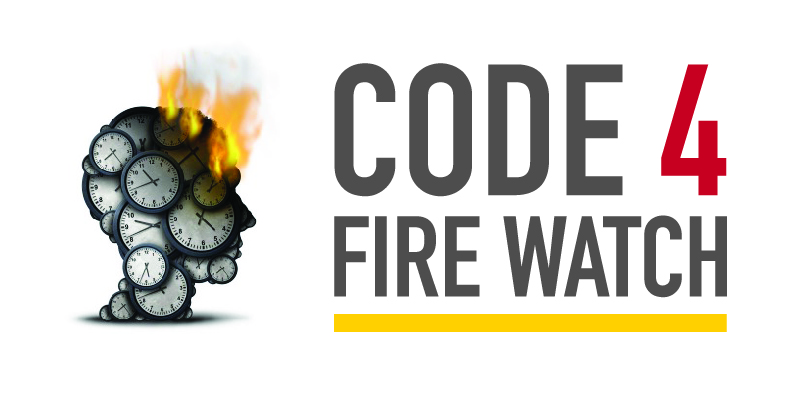Between 2014 and 2018, kitchen fires accounted for more than $1 billion in property damage. Oftentimes, these damaging situations involve grease fires. Grease fires are one of the most dangerous situations, whether at home or in a professional kitchen. Additionally, grease fires can be difficult to put out. If you do not know how to properly extinguish a grease fire, it is very easy to suffer serious burns. Before cooking or working in a kitchen, you should understand how to prevent and put out a grease fire. Preparing yourself or kitchen staff for this situation can prevent dangerous and damaging fires. Code 4 Fire Watch provides grease fire safety tips to help keep your home or business safe.
Grease Fire Safety
Preventing Grease Fires
The best way to keep kitchens safe is to prevent grease fires. One of the primary components of kitchen fire safety is to monitor everything while it is cooking. Never leave any source of flame or heat in the cooking area unattended, especially when cooking with oil or grease. If you are heating oils or cooking fats, monitor the temperature and slowly increase the heat. Pay attention to the burners and keep the flame on the lowest setting possible. If you think the oil is getting too hot or beginning to burn, turn the heat off immediately.
Whenever you are adding food to hot oil or cooking fats, slowly lower it in. Dropping food can spread oil outside and cause it to come in contact with the burner or flame. Never place frozen food into hot oil, as this can cause a major grease fire. Avoid mixing water with hot oil as well. If water mixes with hot oil, not only will it splatter but can also ignite. Keep the frying area clear of any sources of water, like cups of beverages.
Putting Out a Grease Fire
The number one thing to know about grease fires is to not put water on them. Spraying a grease fire with water will not put it out. The water will disperse the flaming grease and cause the fire to spread. Turning off the heat or flame is the first step. If you are cooking in a pot or pan, cover the fire with a lid. This will deprive the fire of oxygen and will extinguish the fire.
Do not use a dry or wet cloth to try and fan the flames, as this will cause the fire to spread. Materials like flour are hazardous to use to extinguish a grease fire. For small grease fires, spreading baking soda can be effective. Using your fire extinguisher is effective, but should be done only in an emergency. The material in the fire extinguisher is toxic if ingested and should be kept away from food. Learn how to use a fire extinguisher. If the grease fire gets out of control, evacuate the building and immediately call 911. Any time you have a fire in your kitchen, it is recommended you call 911 to inspect the area for lingering embers or fires.
Keeping Businesses Safe from Grease Fires
Grease fire safety is one of the main components of kitchen fire safety. By working with staff to understand fire safety tips in the kitchen, your business can operate smoothly and safely. In addition to fire safety tips for businesses, Code 4 Fire Watch provides fire watch services. If your business is facing issues with fire safety systems, you need a manual fire watch patrol. Contact Code 4 Fire Watch any time of the day or night. Our dispatch will have fire safety professionals onsite quickly.
